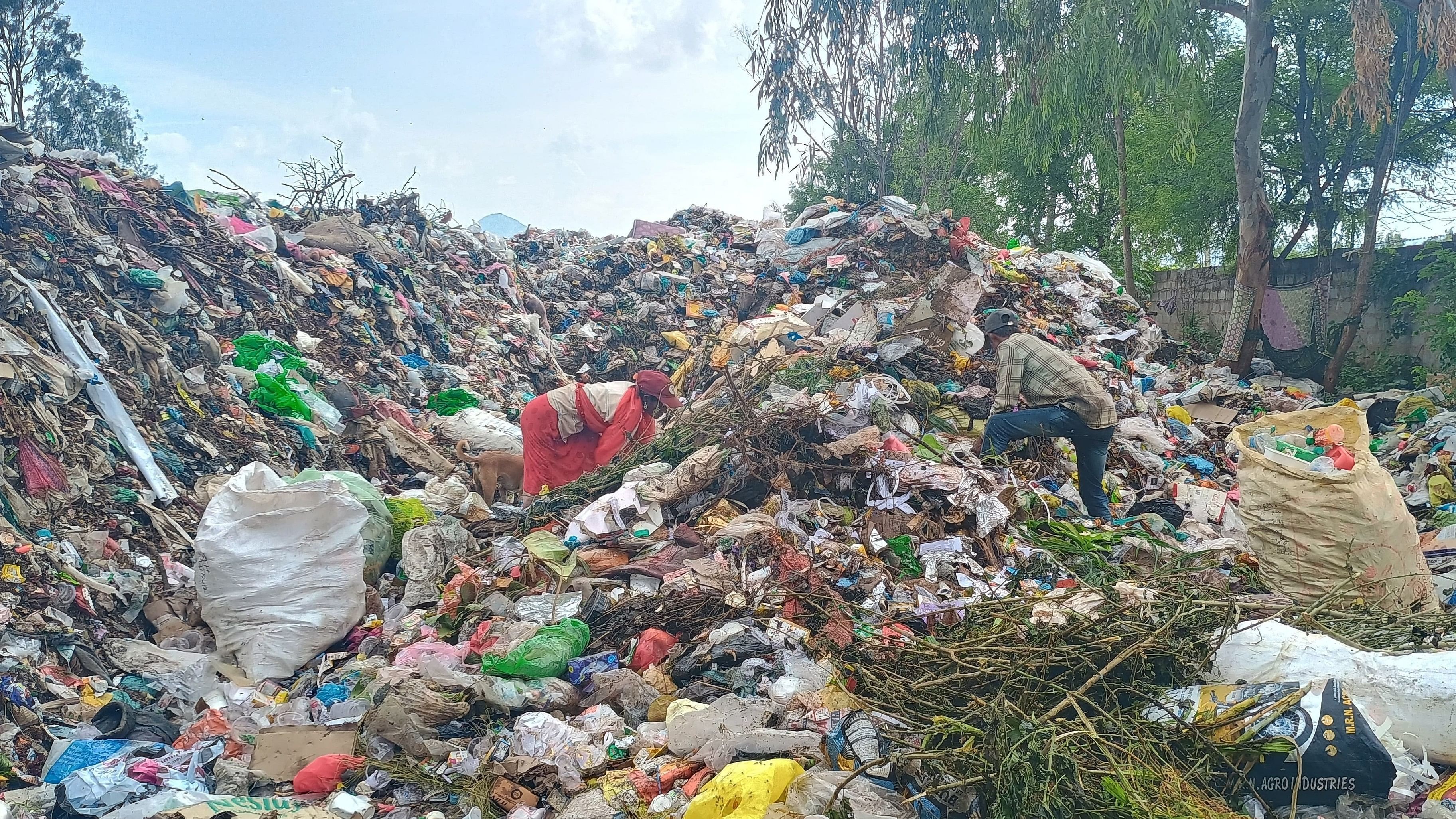
Workers sort waste at the landfill in Doddaballapur.
Credit: Special Arrangement
Bengaluru: In the context of growing legacy waste and inadequate waste management systems, a new study suggests biomining as a potential solution to reclaim landfills in Doddaballapur and other towns and cities in Karnataka.
The study, conducted by researchers at the Indian Institute for Human Settlements, found that 20 dumpsites in Doddaballapur hold approximately 11 lakh cubic metres of legacy waste, covering an area of 129 acres.
Legacy waste refers to old, accumulated solid waste found in landfills.
Kiran DA, senior associate and corresponding author of the study, noted that these dumpsites have been operational for 15 to 25 years, amassing large quantities of unprocessed mixed waste. While the amount of waste in Doddaballapur is small compared to megacities like Bengaluru, which has around 1.07 crore tonnes of legacy waste, Kiran warned that as the district headquarters of Bengaluru Rural, Doddaballapur could soon face a space crunch if fresh waste continues to accumulate without addressing the legacy waste issue. This problem is common across all dumpsites, he added.
Kiran said biomining is an effective way to reclaim space occupied by historic waste. “Biomining involves excavating the legacy waste, forming it into windrows, and applying bioculture before stabilising and screening it through sieves. The waste is then sorted into categories such as inert materials, recyclables, refuse-derived fuel and soil-like materials,” he explained.
However, he cautioned that biomining is not a "cure-all" for waste accumulation. It is a practical approach to reclaim land currently occupied by waste, enabling urban local bodies to establish waste processing units and handle fresh waste efficiently.
“This would reduce the need to acquire new land whenever a dumpsite reaches capacity and help offset operational costs through the sale of end products like compost and recyclables,” he said.
Despite its potential, Kiran stressed that biomining should be conducted in compliance with National Green Tribunal (NGT) guidelines. Unfortunately, several dumpsites across Karnataka have reportedly violated these regulations, continuing to dump solid waste in landfills.